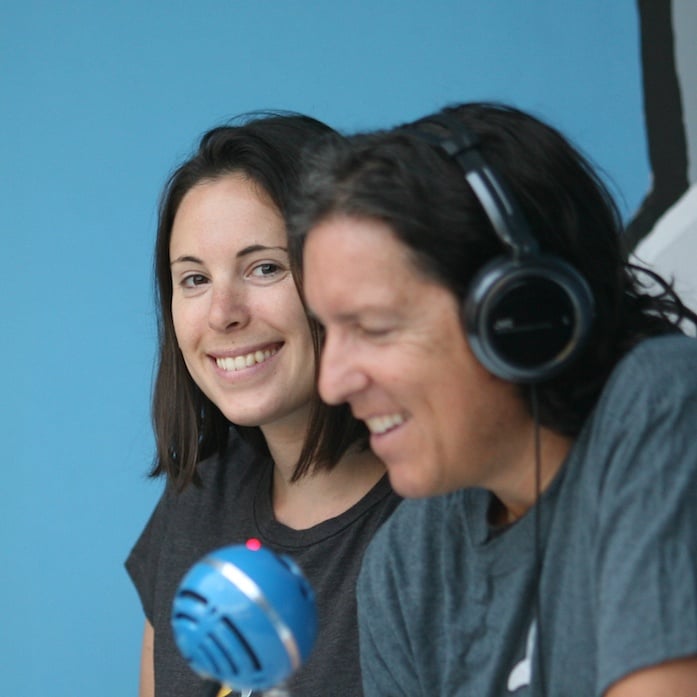
On today's show we're joined by ServiceRocket Chief Operating Officer Erin Rand. Erin discusses scaling tech companies, leading with people and process and how to build a more inclusive company.
Applying industrial engineering principles to tech companies
Industrial and systems engineers connect people, tools and process. Systems thinking is where industrial engineers thrive; they figure out where bottlenecks and friction occur in order make the whole system work better. Chief operating officers need to be generalists. The role of a COO at a given company depends greatly on the person's strengths and weaknesses along with how these are complemented by the rest of the leadership team. At ServiceRocket, the COO is responsible for talent, IT, finance, legal, accounting and more related to operations; and how these all work together to serve our internal customers is what being a COO is about.
Recommended reading: The Goal by Eliyahu M. Goldratt
Recommended listening: Mischa McPherson on Helping Sells Radio
As you scale a tech company, operations challenges vary.
When scaling a small to medium-small tech company, staying focused can be challenging, especially given the degree of greenfield opportunity at that stage. Focusing and understanding when to pivot are crucial. For early-stage companies, resources may be scant; teams need to be smart about where to spend money. As you grow, your challenges will change; tech leaders can benefit from applying the same systems thinking at each new stage.
Focus on values; cultures will shift as you grow, but if everyone shares values, your culture will always be one you're proud of
If you ignore culture, you often end up with a company that's not the one you wanted. You can't easily "fix" culture. Cultures change as companies grow, and if you focus on values, you set the stage for new cultures to emerge that are aligned with your values.
Operation's role is to help employees be successful
A software company's role is to help customers be successful. An operation team's role is to help employees have everything they need from environment, tools, support and vision to do the best work of their lives. As Erin points out, this ultimately helps customers (and everyone in the company).
For successful enterprise software adoption, focus on people, process--and then the tool.
When companies grow larger, change gets difficult. Adopting new software in the enterprise is difficult and it's a complex problem. Enterprises are big, slow, and complex and as a result are risk-averse. Taking on anything new introduces risk. Whoever is in charge of deploying new software at an enterprise needs help in overcoming these challenges.
Following the "people, process, then the tool" model: Remember that an application is only part of the solution. People often buy software, then leave it up to IT to install it; if you haven't looked after people and process, usually the application is blamed. The previous application may have been perfect! But ignoring the other two is where the problems usually arise. Change is difficult, so you have to understand it and do as much as you can to make it easier. Giving people the time and resources and training to understand the bigger picture is key to successful enterprise software implementations. Train super users and admins and give end users time and ability to learn and adapt. Bring together a great team, paint a clear vision for them, and communicate regularly and often. Your job is to help them identify the next bottlenecks and friction points and blow them out. Give your people the support, drive and have their back while they're doing it.
Recommended reading: Re-engineering the Corporation by Michael Hammer
If you're human, you're biased. For tech inclusivity, avoid shortcuts and figure out what skills actually matter.
We tend to hire people who look like us or look like the previous person who held the position. Focus on hiring for the right skills and acknowledge when you're subconsciously equating external characteristics to quality engineering, accounting, or marketing, or sales, or whatever the position may be. Talented people come in a diverse group, and if you see you're getting a lot of people who are the same gender, race, age, etc. you're probably falling into a trap that you're hiring by proxy - by external characteristics.
Does diversity lead to innovation? Not exactly.
It's well-studied that if you have the right skills at the table and differing views and backgrounds you get a more robust output. Erin says that perhaps we've taken that too far in our assumption that diversity leads to the right outcome. In reality, Erin says, lack of diversity leads to a bad outcome and is indicative that you're not hiring for skills, you're hiring for external characteristics you associate with skills. Test the things that really matter and you'll get a diverse groups. Hiring the right people with the right skills - that leads to a divers group of talented individuals.
Tell us what you think of Helping Sells Radio
You could:
- Write a review on iTunes.
- Tweet us using the hashtag #HelpingSells
- Comment below.
Thanks for listening to the show.




